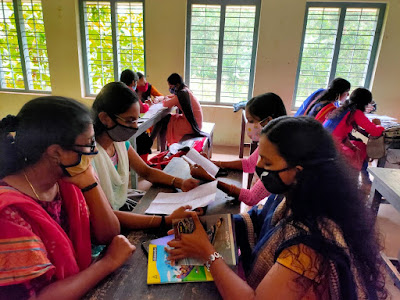EDU 301.3 - WORKSHOP ON MUSIC
Music is something that we all enjoy in the course of our lives. It is the sound that is brought together through a harmony of instruments and singing voices. It is something that is part of us ever since we enter this world. Our mothers, fathers and grandparents sing us lullabies so that we can sleep peacefully. In the mornings, we listen to the birds chirping and the leaves of plants and trees rustling, and even this is like music to our ears. Music is everywhere, and all you have to do is open up your ears to hear it.
Music is a wonderful tool in education. Music has an important aspect of providing children with a well-rounded education. When allowed to work in harmony with other subjects and areas of study, music helps children grow in self-esteem, build essential skills and prepare for bright futures.Various studies have found that engagement with music can lead to an improvement in brain development in children. Music is important in that it helps with math and science.
Instructors who choose to integrate music into their courses have several options. From least to most radical, these include posting song links for students to explore on their own time, preceding class with a prerecorded song (or inserting it into a mid-lab break), performing and discussing a song during class, and assigning students the task of writing and performing songs. The idea that music might enhance learning in advanced science courses, while unproven, is plausible, because there are several overlapping mechanisms through which songs could work, at least in theory. Music in learning can Enhancement of Recall ,Reduction of Stress ,Increased Enjoyment ,In-Depth Exploration of Content etc. Music may not become part of every maths or science teacher’s toolkit anytime soon, its potential applications are intriguing.
A workshop on music was conducted on November 3 Tuesday as a part of 3rd semester B.Ed curriculum . The full day programme was handled by Dr. Bhuvanendran Nair. Forenoon section was a discussion including the importance of music in education and how to implement music to different subjects as a teacher. In the afternoon section a competition was conducted . 50 students in the class was divided into 11 groups. Each group prepared a portion of their optional subject of class 8,9, 10 in the form of music like Vanchipattu, Thullal pattu , Naadan pattu , etc . It was presented in group wise and teachers evaluated the presentation. Each groups got points according to their preparation and presentation. At 4 pm the program dispersed .













































